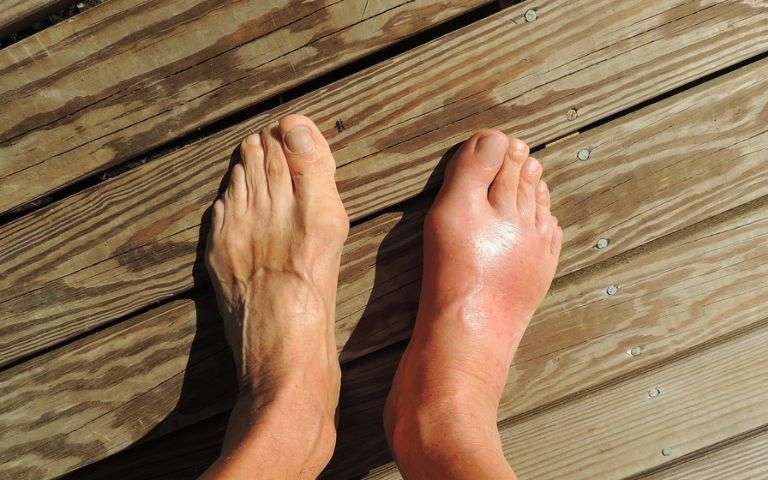Gout – An Overview
Gout is a form of complex inflammatory arthritis characterized by sudden, severe attacks of pain, redness, swelling, and stiffness in joints. Gout often affects the joint at the base of the big toe, however, other joints in the arms (fingers, elbows, wrists) and legs (knees, toes, ankles) can also get affected.
Symptoms
Gout attacks often occur suddenly without any clear warning signs and stay for a relatively short period of time. Here are some of the characteristic Gout in Ankle Symptoms and signs:
- sudden onset of intense joint pain
- swelling and warmth around joints
- lingering discomfort
- limited range of motion
- mild fever
Causes & Risk Factors
Gout is typically associated with high levels of uric acid in the blood, a condition medically referred to as “hyperuricemia“. Under normal condition, an excess amount of uric acid is discharged by the body in urine via the kidneys; however, a high concentration of uric acids in the blood may result in the formation and buildup of needle-like crystals called “urate crystals” in the joints, causing intense pain, inflammation, and swelling. Factors that may result in an abnormal increase of uric acid in the blood and ultimately hyperuricemia are:
- abnormal kidney function
- poor diet (a diet rich in meat and seafood)
- obesity
- medical conditions such as high blood pressure, diabetes, kidney diseases, metabolic syndrome
- medications such as aspirin
- recent trauma or surgery
- heavy alcohol intake

Can Diet Help?
Yes, to a great extent, since gout is a result of high concentrations of uric acid in the body and restricting high-purine foods and fructose along with proper medications can greatly decrease your chances of getting an attack. Here is a list of some food items with high purine and high fructose concentration that should be avoided if you suffer from gout:
- fish, such as tuna, herring, sardines, trout, haddock, mackerel
- meat, such as kidney, liver, brain
- poultry
- seafood, such as shrimps, scallops, roe, and crab
- sugary beverages, such as colas, malts, beer, alcohol
- added sugar, such as corn syrups, honey, nectar, jam, jelly

